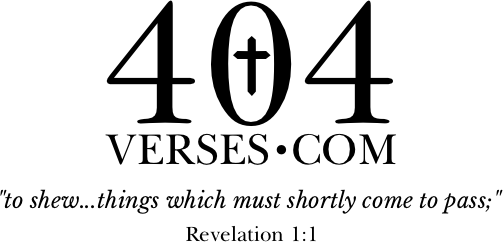The Number of Totality, Completeness, and Perfection.
The number seven (7) appears to have drawn its essential meaning from God bringing “good” out of chaos in His creation of “heaven and earth, the sea, and all that in them is” in six days, and then “resting” on the seventh‒the day designated as the Sabbath and the prescribed cause for the weekly cycle (Genesis 1:1, 2, 31; Genesis 2:1-3; Exodus 20:8-11). Further, it’s interesting to note that the word “created” is used seven times in describing God bringing forth paradise out of that which was “without form, and void” (Genesis 1:1, 21, 27; 2:3; 2:4).
From a not-so-biblical standpoint, yet according to Jewish tradition, the creation of Adam occurred on October 7th, 3761 B.C.‒that is, on the first day of Tishri, which is the seventh month on the Hebrew calendar. While it is true, of course, that the foundation of such a tradition cannot be factually proven, there are, for the student of the Bible, hundreds of explicit examples which demonstrate the significance of the number seven in the Word of God. Consider, below, just a handful of them:
1. Used 735 times (54 times in the book of Revelation alone), the number seven is clearly and readily found throughout the Bible. If we include the variations of “sevenfold” (6) and “seventh” (119), the total jumps to 860 instances.
2. As a whole, the Word of God was originally divided into seven major divisions:
1) the Law,
2) the Prophets,
3) the Psalms,
4) the Gospels and Acts,
5) the General Epistles,
6) the Epistles of Paul, and
7) the book of Revelation.
3. Seven pairs of each clean animal were to be brought into the ark (Genesis 7:2, 3).
4. There are seven men in the Old Testament who are each designated as a “man of God,” They are:
1) Moses (Joshua 14:6),
2) David (2 Chronicles 8:14),
3) Samuel (1 Samuel 9:6, 14),
4) Shemaiah (1 Kings 12:22),
5) Elijah (1 Kings 17:18),
6) Elisha (2 Kings 5:8) and
7) Igdaliah (Jeremiah 35:4).
5. Animals were to be at least seven days old before being used for sacrifice (Exodus 22:30).
6. There were seven stems on the tabernacle’s lampstand (Exodus 25:37).
7. The Jewish people celebrate seven annual holy days in accordance with Old Testament teaching. They begin with Passover and end with the Last Great Day – the day after the Feast of Tabernacles ends. The holy days’ cycle is completed, in 3 festival seasons, by the 7th month of the sacred calendar:
1) Passover and
2) Unleavened Bread, 1st month;
3) Pentecost, 3rd month; and
4) Trumpets,
5) Atonement,
6) Tabernacles and
7) Last Great Day, 7th month (Exodus 23:14-17; see also Deuteronomy 16).
8. Naaman was told to bathe in the Jordan River seven times to affect a complete cleansing from leprosy (2 Kings 5:10).
9. Joshua was commanded to march around Jericho for seven days, and on the seventh day to make seven circuits, and for seven priests to blow seven trumpets outside the city walls – all in order to bring about a sudden and complete victory (Joshua 6:3, 4).
10. There are seven things the Lord hates. They are:
1) “a proud look,”
2) “a lying tongue,”
3) “hands that shed innocent blood,”
4) “an heart that deviseth wicked imaginations,”
5) “feet that be swift in running to mischief,”
6) “a false witness that speaketh lies,” and
7) “he that soweth discord among brethren” (Proverbs 6:16).
11. In Matthew 13, Jesus is quoted as giving seven parables. They are:
1) The Sower (Matthew 13:3-9),
2) The Weeds (Matthew 13:24-30),
3) The Mustard Seed (Matthew 13:31, 32),
4) The Leaven (Matthew 13:33),
5) The Hidden Treasure (Matthew 13:44),
6) The Pearl of Great Price (Matthew 13:45, 46), and
7) The Net (Matthew 13:47-50).
12. Jesus performed seven miracles on the Sabbath Day – that is, on the “seventh day” of the week. They are found in:
1) Matthew 12:9,
2) Mark 1:21,
3) Mark 1:29,
4) Luke 13:11,
5) Luke 14:2,
6) John 5:8, 9, and
7) John 9:14.
13. Jesus pronounced seven blessings on the righteous in Matthew 5: 3-10. They are:
1) “theirs is the kingdom of Heaven” (Matthew 5:3, 10),
2) “they shall be comforted” (Matthew 5:4),
3) “they shall inherit the earth” (Matthew 5:5),
4) “they shall be filled” (Matthew 5:6),
5) “they shall obtain mercy” (Matthew 5:7),
6) “they shall see God” (Matthew 5:8), and
7) “they shall be called the children of God” (Matthew 5:9).
14. Jesus pronounced seven woes on the unrighteous Scribes and Pharisees in Matthew 23: 13-31. Why? Because:
1) they kept people out of God’s kingdom (Matthew 23:13),
2) they took advantage of widows (Matthew 23:14),
3) they misled men to eternal destruction (Matthew 23:15),
4) they were covetous of worldly things (Matthew 23:16-22),
5) they refused to show compassion (Matthew 23:23-24),
6) they were inwardly corrupt (Matthew 23:25-28), and
7) They afflicted the righteous (Matthew 23:29-31).
15. In the book of Hebrews, seven titles are used to refer to Christ. They are:
1) “Heir of all things” (1:2),
2) “Captain of our salvation” (2:10),
3) “Apostle” (3:1),
4) “Author of salvation” (5:9),
5) “Forerunner” (6:20),
6) “High Priest” (10:21) and
7) the “Author and finisher of our faith” (12:2).
16. In the book of Revelation there are seven churches (Revelation 1:4), seven angels to the seven churches (Revelation 1:20), seven seals (Revelation 5:1), seven trumpet plagues (Revelation 8:1, 2), seven thunders (Revelation 10:3, 4), and the seven last plagues (Revelation 15:1).[mistape]

